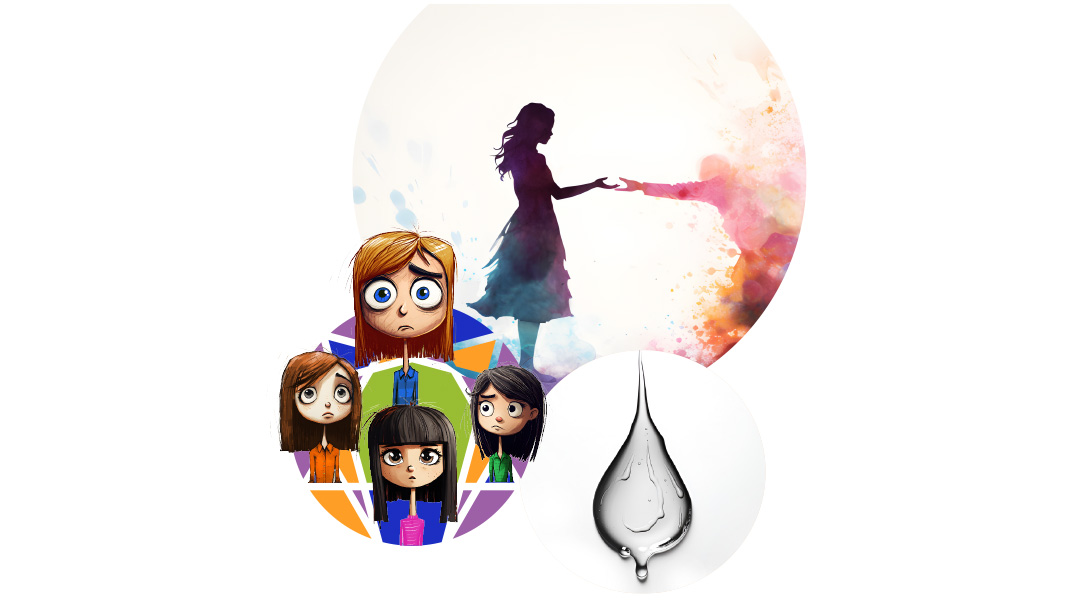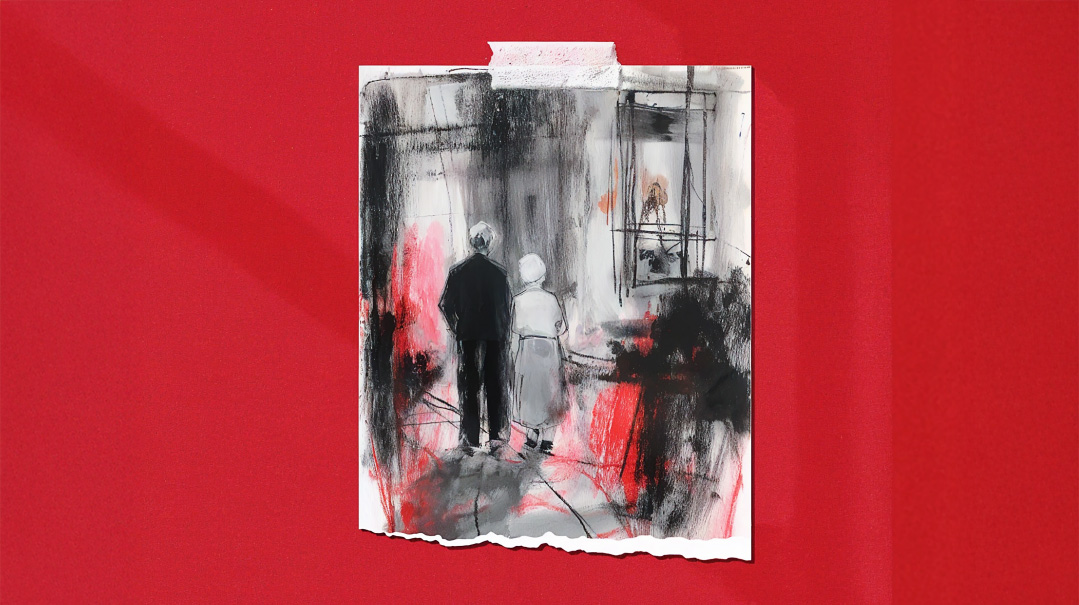Family First Inbox: Issue 864

“In order to honor ourselves, we must understand that our parents' limitations weren’t our fault”

You Broke a Taboo [Making Peace with My Mother / Issue 862]
Bless you! You broke the taboo that often prevents children from speaking about their parents’ emotional handicaps. In the article “Making Peace with My Mother,” Zahava Gold says, “She simply didn’t have the emotional capacity to nurture us.” This is such a powerful statement. It’s so very important for people to know that many parents lack the capacity to nurture. A full 100 percent of children blame themselves for their parents’ inability to nurture them. It may need years of therapy to overcome the damage that this belief causes and to stop blaming themselves.
We’ve been taught that honoring parents means not seeing anything wrong with them. This leaves victims of neglect and abuse shunned, silenced, and shamed. Such articles help adult children to simply admit that, for whatever reasons, our parents were unable to nurture us emotionally, even if they did provide food and clothing.
In order to honor parents who were unable to love, we must recognize that many of them had limitations that prevented them from giving their children the message, “You’re seen, safe, secure, and valued by me as you are.” They may have had addictions or suffered from depression, anxiety, BPD, NPD, or other afflictions that kept them in a self-absorbed bubble that their children couldn’t penetrate.
In order to honor ourselves, we must understand that their limitations weren’t our fault.
Miriam Adahan
Homelife Isn’t Always Happy [Making Peace with My Mother / Issue 862]
I picked up the Yom Tov edition of Family First, and wasn’t so excited to read it — the headline was about home, and many of the articles were “mother”-related.
Don’t get me wrong, I’m happy so many people have happy associations with moms and home, but I don’t.
Then I accidentally came across Zahava Gold’s article, “Making Peace with My Mother.” Zahava, you hit home.
I read your words feeling that I could have written so many of them myself. Your story was not only relatable, but inspiring. In the face of so much negativity and struggle, you persisted, and you still do. It was uplifting to know that I’m not alone in this challenge, but even more, that I’m not alone in trying to rise above it, day by day, with each small victory to celebrate.
Thank you for sharing your story. For everyone out there whose memories of home are less than nostalgic, you’ve done a tremendous service.
Also Trying to Make Peace
It Came from Ignorance [I Don’t Care About Your Enneagram Number / Issue 862]
I’m writing about the article on the Enneagram. It’s highly disturbing that the Enneagram was so minimized in a public forum by people who had so little information and had done so little research on the topic (one of the authors refused to see the full report of her results which could have clarified it for her tremendously), and then went ahead and unwittingly made a mockery of it. Did she seriously rely on Google to check the veracity of the Enneagram? It’s no secret that it’s one of the most unreliable sources around!
In fact, the Enneagram is one of the oldest, most reliable, scientifically validated personality systems that exists! It has been studied extensively, developed throughout the years by experts in the field, and has an unusually high accuracy rating for its testing.
Unfortunately, these authors tried navigating a complex field on their own, without doing any serious work to understand what it’s about or what can be done with it. Would they have gone on a complex diet without research and guidance from an expert in the field?
As an Enneagram teacher and life coach, I can attest to the uniquely powerful effects of the Enneagram. It not only accurately diagnoses one’s innate wiring and revels hidden strengths, it unlocks a person’s roadmap for personal growth in self-awareness, relationships, and avodas Hashem. Clients who used it in a coaching context were shocked at how it expedites the therapy process, enlightens them on their and their children’s behaviors, triggers, and needs, and provides powerful on-target tools to work accordingly.
Most frustratingly, there are so many people who feel the same as the authors due to lack of knowledge and guidance on the Enneagram and will now disregard it. This must be corrected. Was any other science or respected methodology ever made fun of like this in your magazine? Even truths that were quoted from a reliable source, the Enneagram Institute, such as how two types get along in a relationship, is only general guidance and does not take into account other more subtle but important personality aspects — or middos.
Writers, I challenge you to a redo. I can gladly assist you with more information on the topic and if you’d like, some coaching sessions. You may just become a fan after all.
Dana Rosenberg
Enneagram Teacher and Certified Enneagram Life Coach
Motherless Mothers [Inbox / Issue 862]
This letter is in response to the letter in the inbox titled, “Dote on the New Mother.’’
Dear M.K.,
Your letter regarding doting on new mothers was full of passion, and I can tell this is a topic you truly care about. I can also read through the lines to see that you’re talking from a place with a solid support system to lean back on: sisters, a caring pediatrician, etc.
However, I was bothered by your assumption that people choosing to go straight home from the hospital after birth are “idealistic’’ or “romanticizing.’’ For some this may be true, but I would like to invite to the stage a large group of women who have no other choice but to go home. For them, being “doted on’’ after birth seems like a faraway dream.
Many women have no one to dote on them. Their mothers may be physically or mentally unable to support them during this time. Let’s not forget the many, many women whose mothers have passed away. Each are navigating this lonely journey of being a ‘’motherless mother,’’ and let me say, it’s an extremely isolating experience.
Well, what about their husband? Let’s not forget there are other kids to be taken care of. The care these women are able to give themselves after birth realistically ends the minute they leave the hospital.
You make the statement so simply that those who aren’t near family when they give birth must make sure they have a proper support system in place. But the honest truth is, it’s not so simple. I’m unsure of what more can be done beyond the basic community support systems that often are in place across the world. Perhaps you can arrange for a teenage girl to come in to look after your other kids. But this doesn’t do anything to soothe the emotional strain and isolating feeling felt by “motherless mothers.’’
This is where the question of emotional health comes into play and where the needs of these mothers are just not met. I’ve been asked countless times by people I hardly know, “So is your mother flying out to be with you after you give birth?’’ This assumption in the frum community has to end. It’s definitely a huge part of our culture to receive an abundance of family support after giving birth, but the stabbing pain felt by those who can’t get this is very intense.
Imagine for a second the emotions felt by a mother sitting at her son’s bris without her own mother by her side. Or a mother who, having just given birth, calls everyone in the world to share the news... except for her own mother. The comments after naming your daughter after your mother — “how special,’’ or “how nice’’ — yes, it’s special and nice, but in the moment, when you’re fresh after birth, a new mother may not share that feeling.
We need to give “motherless mothers’’ the permission to be new mothers with the emotional support they need during this time.
Perhaps that calls for a new organization to join the ranks of the many amazing chesed organizations that already exist in the Jewish community — to allow all mothers to be healthy and strong.
A Motherless Mother
Parents Mixing In [Words Unspoken / Issue 862]
I’m in full agreement that parents shouldn’t mix into decisions their children make, but I’m witnessing, both personally and through friends and clients of mine, a complete moral decay in how married children treat parents.
When I was newly married, I was so appreciative of whatever support my parents or in-laws gave, be it physical, emotional, or financial. I didn’t have “expectations” and I most definitely never “spoke back” to either my parents or in-laws. Even when they mixed in, which they did and still do plenty of times, I held my tongue because I was raised to believe that kibbud av v’eim was paramount.
I think young couples must be taught how to treat parents. That should be the article that is written. Not vice versa. We’re so busy tiptoeing around our kids, and we’ve invested a lot of emotional energy into raising them. Having married children is an adjustment for parents, just as it is an adjustment for children. And if I’m not mistaken, one of the Aseres Hadibros is to be mechabed your parents, not parents be mechabed their kids. I’m hoping to see a future article about the respect and hakaras hatov married children should have for their parents, who put so much of their kochos into building the future dor.
With hopes for a brighter future and more grateful children,
Anonymous
Raw Emotion Resonated [Lifetakes / Issue 861]
I wanted to commend Adina Weiss for her stunning piece on gaining inspiration from the way a girl with Down syndrome davened in shul on Rosh Hashanah.
I read it once, then again, and then again to my mother, who turned to me and asked, “Did you write this?” Since I was reading it on Shabbos, I tried not to cry, but my efforts were futile. The article was full of raw emotion that really resonated with me.
I wish I were eloquent enough to put my feelings to paper as she did. She encapsulated all the feelings that had been festering within me in the lead-up to Rosh Hashanah and Yom Kippur.
I have a hard time getting into the proper zone, especially when feeling unanswered, and as though nothing has changed since last year, etc.
I tore the page out and stuck it in my machzor, and there is no doubt that it helped uplift my Yom Kippur tefillos.
Thank you for sharing, and may all singles merit to see their yeshuos b’karov!
Anonymous
I Wish It Was Longer [The Scenic Route]
I’m reaching out to say thank you. It means so much to me that you’re putting out content for young women like me... young, struggling, waiting for children... and no one knows of the struggle. Because we’ve been married for “just two and a half years.”
I wish it could be longer than just six parts. I wish you could write more on the topic. It’s such a taboo, and finding frum content is a rarity.
Thank you so, so much.
Tizku l’mitzvos,
Name Withheld
(Originally featured in Family First, Issue 864)
Oops! We could not locate your form.







